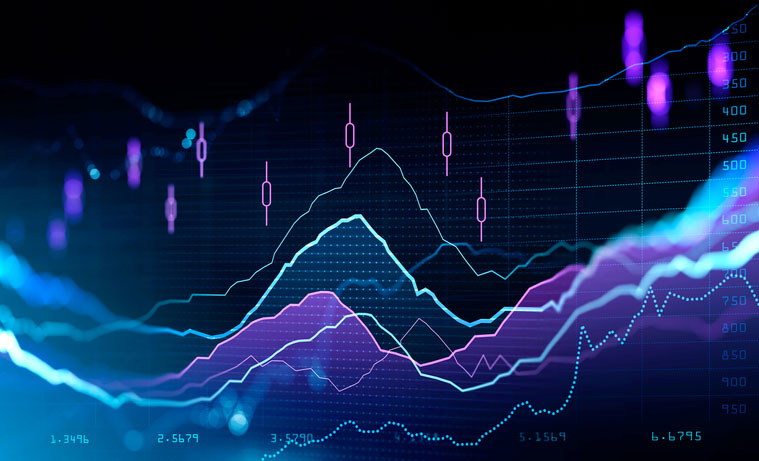Transitioning to Data Science
What could a doctor and a data scientist possibly have in common? A lot more than you’d expect – they could both be data scientists!Many skills are required to be a data scientist. They are best acquired through a data science degree or certificate program, which provides the advanced training needed to perform the complex duties of the role. However, there are some career paths that can provide enough orientation to make this transition an accessible and appealing option.

Breaking into data science can happen without a degree–if you’ve got the right skills.
Career paths such as healthcare, finance, accounting, mechanical engineering, software engineering, consulting, and marketing are examples of industries employees tend to have skill sets that can translate into the data science profession. At the very least, these industries supply their workers with the skills to qualify for an entry-level data science position.
Transitioning to data science can happen across many fields. This is partly because data science is part of virtually all industries, with its presence only continuing to grow. With so many large-scale institutions increasingly relying on large quantities of data at all moments, there is a growing need for data scientists in fields of all types.
Why become a data scientist?
If you are already working in a high-earning occupation, it’s fair to wonder what the advantages might be of pivoting to a new field altogether. The answer: the unique prosperity of the data science profession.
Big data has been a rapidly expanding discipline for decades, becoming central to all different types of business strategy in virtually any industry you can think of.
Data scientists have extremely valuable skills that are highly sought after, making it a lucrative and rewarding career path for those who have the skills for it.
If you have a background in any of the industries above and are considering a pivot into a data science profession, this guide will give you all the information you need to get started, outlining the skills you may already have developed in your current profession as well as those you still may need to build up before launching the next phase of your career.
Transitioning From Healthcare to Data Science

Data science has already dramatically reshaped the field of healthcare, with no signs of slowing down anytime in the future. Healthcare workers at all levels use and are exposed to healthcare-related datasets –some known as “advanced analytics,” which are the exact resources data scientists handle to conduct their work.
The specific advanced analytics healthcare workers are exposed to can range from medical records to administrative bookkeeping. Nevertheless, a skill most applicable to data science is interpreting, translating, and conveying advanced analytics to those who cannot understand it.
Many methods of medical practice are even identically reminiscent of a data scientist’s workflow. A medical scribe, for example, mines data from patients and creates a model for doctors to use to treat patients –this is akin to how data scientists and data analysts work together.
Transitioning to data science from healthcare should start with amplifying these skills on one’s resume and, if possible, starting to begin learning coding languages, such as Python, in one’s free time.
Switching From Finance to Data Science

The financial industry, like healthcare, has endless departments creating the potential for developing unique skills.
Skills for transitioning to data science from finance are especially prominent in the security domain of data science.
Institutions receive and use a lot of data, but most data institutions and individuals receive spam and other security risks. Data scientists are needed when data needs protection and maintenance at a large scale.
In finance, fixed-income analysts have a role that involves no coding or machine learning. Instead, it is analogous to data science because they are responsible for securing large quantities of capital being exchanged across accounts.
This level of responsibility is immense, and a worker that can handle such responsibility is precisely the type to thrive in data science.
When your department is responsible for securing information that is essential to business or banking operations, that’s a lot of pressure. However, this is the kind of pressure that fixed-income analysts in the financial industry can handle, making them an ideal candidate for transitioning to data science as a career.
Switch Career From Accounting to Data Science
Accountants are responsible for handling the finances of individuals, businesses, and other large entities, becoming essential to their ability to function. This is similar to the role of fixed-income analysts, who oversee and secure large-scale banking transactions.
Accountants are also responsible for translating complex financial jargon into simple language so their clients can become better decision-makers. For example, a good accountant won’t explain things using obscure economic terminology but instead will do so in plain language.
Similarly, in data science, data analysts are responsible for interpreting data models created by data scientists and translating them into understandable reports for clients. Clients hire data scientists because they lack an understanding of data but need to use it daily to become better decision-makers.
Helping people become better decision-makers is the core task of all data scientists, so accountants are ideal candidates for a career transition to data science.
Switching From Mechanical Engineering to Data Science
Mechanical engineering is an occupation that is broadly defined but can roughly be characterized as engineers who, according to the Bureau of Labor Statistics, use force and movement to “design, develop, build, and test mechanical and thermal sensors and devices.”
We should think of mechanical engineers, therefore, as individuals who have a huge wrench that can be used to fix a number of practical problems across all industries.
Hence, using their strong backgrounds in physics, mechanical engineers are responsible for maintaining the equipment that organizations use to function, whether that equipment is hardware or software-based.
In data science, mechanical engineers will need to learn new programming and thinking modes grounded in critical analysis. This skill is also cultivated when teaching statistics, which is highly mathematical.
Anyone with a background in applied mathematics, such as mechanical engineering, should consider transitioning to data science as a career. This skill set will give them a massive head start educationally.
Software Engineer to Data Scientist Transition
Data science and software engineering are remarkably similar to one another.
In data science, analysts and scientists are tasked with ensuring that institutional datasets function correctly and, in some cases, deploy datasets to engineer systems that provide such functionality.
Software engineers similarly deploy datasets to engineer software systems through rigorous trial-and-error testing and machine learning algorithms.
Having an impressive background in quantitative reasoning and its practical application with large datasets, software engineers are the best candidates suited for transitioning to data science as a career.
Ideally, however, the jobs that software engineers should be aiming at in data science are data engineering jobs.
Transition From Consulting to Data Science
Consultants are known to work in all industries. Doesn’t that sound familiar? Data scientists do too!
However, there are other attributes consulting and data science have in common. The primary role of a consultant, like an accountant, is to make their client a better decision-maker.
Accountants, however, deal with decisions that are primarily financially driven. Consultants’ roles are much more wide-ranging.
Consultants are always prepared to learn a new domain of information –they cannot afford to have a client come to them who they cannot consult due to a lack of understanding of their industry.
This perpetual motivation to learn among consultants is well-suited to data science, which requires this drive.
The world of machine learning is, by definition, constantly changing, so astute data scientists will be keeping up with such changes in a way comparable to consultants keeping up with industry trends.
Transition From Marketing to Data Science
When we hear the word “marketing,” intuitively, ” advertising ” comes to mind.” Ads, however, are only one component of marketing.
Marketers are the unsung heroes of practical data use in the work world. They routinely use statistics, graphs, and other modes of data analysis to track trends, traffic, and audience engagement, to manipulate them in positive directions for their client or employer.
For example, a marketer using a program like Google Search Console will view the data it provides to make amendments to web copy and content. Then, they will see if this test has made a positive change.
Like mechanical engineers, marketers are adept at designing, developing, building, and testing systems based on data sets to produce positive client outcomes.
Therefore, transitioning to data science from marketing can be smooth–especially for more data-oriented marketers.
Data Science Career Transitioning
Data scientists are known to help organizations and individuals become better decision-makers through their knowledge of advanced analytics and the use of advanced analytic tools to manipulate data.
This is, indeed, a set of skills that is best acquired through a degree.
While marketers, consultants, software engineers, mechanical engineers, accountants, fixed income analysts, and medical scribes, among other related occupations, are uniquely well-suited to transition to data science, this transition must ultimately involve getting a data science degree.
This is because the experience will only take you so far in a data science career–not far past an entry-level position.
Only a Master’s in Data Science will give you the core competencies needed to qualify for top-ranking roles in the industry of your choice.
Leaping into data science from any field will require students to first brush up on quantitative reasoning and general mathematics, then investigate ways of learning programming language online before enrolling in a program.
It is always good to get a head start. The only way to do that in school is by studying in your free time or already having the knowledge needed to be ahead.
Taking the next steps to transition into a data science career
As you can see, there are many occupations whose responsibilities and skill sets overlap with the lucrative and stimulating work that goes into big data. Now couldn’t be a better time to enter the world of data science, whose decades-long boom is showing no signs of slowing down in the future.
If you are interested in making a career move to data science from any of the above mentioned industries or are interested in becoming a data scientist, check out data science programs here to get started.






